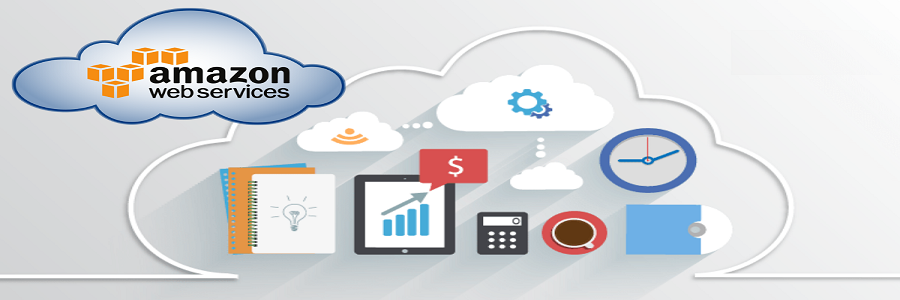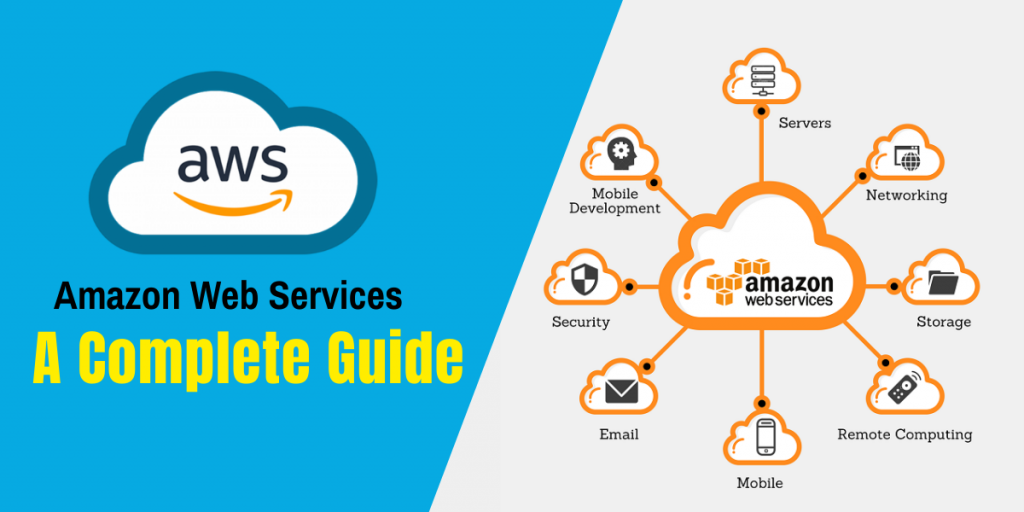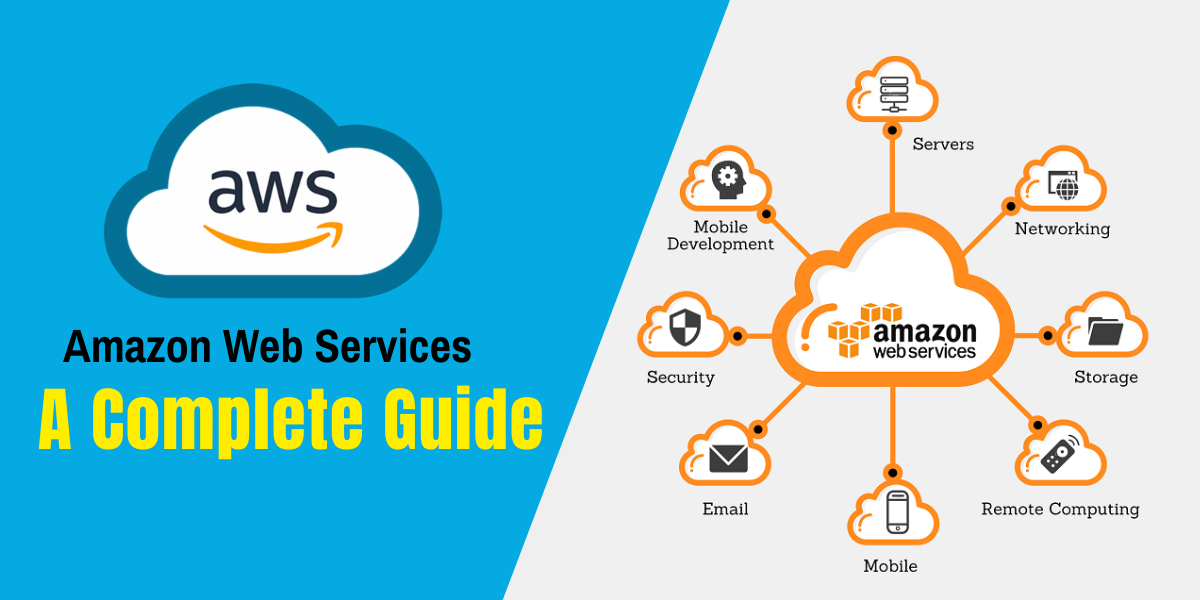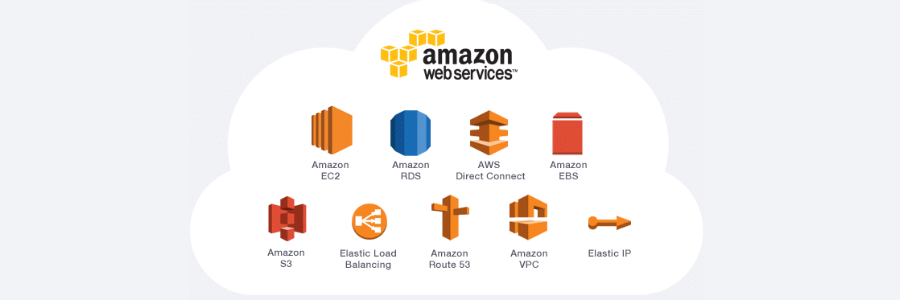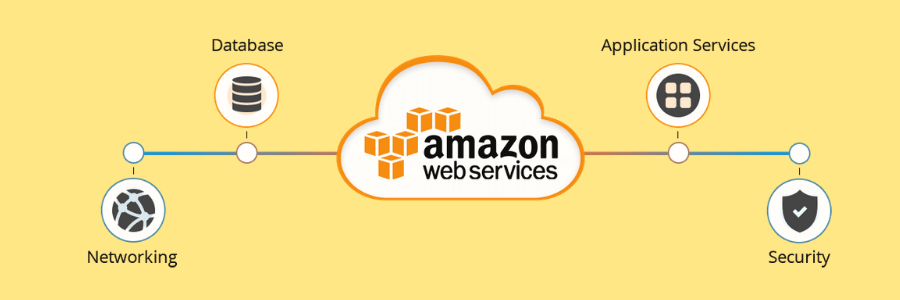10 Best Services Offered by Amazon Web Services (2020 Update)
Amazon Web Services is a subordinate of Amazon that provides a cloud computing platform to evolve an organization.
You will also agree that Amazon Web Services have always been a building block for the organization that plans to develop any type of application over the cloud.
Simple implementation, high security, elasticity, scalability, and flexibility are a few must-consider factors of Amazon Web Services. In addition to this, Amazon has different services that cater to fulfill the requirements of different domains. A few commonly used domains of AWS are compute, storage, database, migration, network, content delivery, management tools, security, and identity compliance.
Talking about the broad spectrum of services offered by AWS, here are 10 trending services that can be implemented on apps or databases over AWS cloud to perfectly fit into the project.
Let’s get started!
What are the Top 10 Amazon Web Services 2020?
1. Amazon S3
Amazon S3 is on the top of the AWS service list. This is because storage and retrieval of data plays a very significant role in cloud computing. AWS delivers Amazon Simple Storage Service or Amazon S3 to store and retrieve data from the cloud.
This scalable, inexpensive, and high-speed web-based service is designed for archival and online backup of the application program as well as data. S3 allows the user to access the same system like that of Amazon to run its website. Users can control public and private data.
Besides the intelligent distribution of data in various data centers, Amazon S3 also offers integrations like FedRAMP, PCI-DSS, and HIPAA/HITECH to prevent data compromise.
Most importantly, the drastic growth of annual data transfer on an average with Amazon S3 is predicted to be 91%! This is a clear sign that S3 is one of the most used AWS services.
Do you know that anyone can access a free layer providing a storage capacity of 5 GB? And the best part is, the pricing starts at $0.023 per month to access the first 50TB of storage capacity. Cost-friendly, right?
2. Amazon CloudFront
Have you ever evaluated, how fast is your website?
When the users connect, do they have to wait for a few seconds to open a page?
Amazon CloudFront is one of the best Amazon Cloud services offering the best solution to these issues.
Having a unique feature of improving the speed of the website, the service also helps in accessing user information on the cloud.
CloudFront is basically a Global Content Delivery Service that assists in managing content, delivering it to the end-user thereby ensuring the efficient presentation.
This particular AWS service helps in providing website static files that are obtained from various data centers across the globe. One most considering advantage is the improvement in the loading speed of web pages and user satisfaction.
It becomes very convenient to reach your target users with the Amazon CloudFront. Having effective integration with other AWS services, it offers the least latency possible.
3. Amazon Elastic Cloud Compute (EC2)
AWS came up with something unique!
Forget about the expensive physical servers when you have Amazon Elastic Cloud Compute. This Amazon cloud service allows you to create virtual machines and manage other features of servers; such as storage, security, ports, etc.
Amazon EC2 is the best bet as it allows you to build servers within minutes with your preferred operating system. Furthermore, it will help you have more time to take care of your projects and spend less time maintaining your servers.
The Amazon EC2 service basically falls under the category of computing domain. It provides services that help to compute workloads.
This web interface reduces the costly physical servers as it develops virtual machines. Also, it helps in managing various features of the virtual servers. The features include security, ports, and storage. It offers resizable compute capacity in the cloud. Moreover, it helps a lot to aim at the project rather than the server maintenance.
4. Amazon RDS
Amazon helps in creating the infrastructure less complicated, and this is one of the reasons it has come up with something exceptional. Wondering, what is it?
Amazon Relational Database Service (RDS) allows you to set up, operate, and scale a relational database in the cloud. It provides cost-efficient and re sizable capacity while automating time-consuming administration tasks like hardware provisioning, database setup, patching and backups.
You can aim at focusing on apps for providing fast performance, high availability, security and compatibility they need. Also, it is able to support multiple database engines like SQL, PostgreSQL, SQL Server, etc.
This one is another popular addition in the AWS service list 2020. RDS ensures limited complexities in terms of the design of cloud infrastructure
Finally, you will definitely forget all those hours of maintenance and support to the database servers!
The facility of dedicated instances for databases within a limited period and complete management privileges provided by the AWS support team are some of the major reasons that put Amazon RDS in this list of top AWS services.
5. Amazon VPC
Do you feel your data is at risk in the AWS cloud? No, it’s not.
The private network in the cloud makes the data accessible to the people or systems that you authorize. With the help of this Amazon cloud service, you can create a private virtual network. In this particular network, your complete IT environment lives totally isolated from the outside world. This way your information is free of exposure.
Most Amazon cloud consultants say that Amazon VPC is one of the most popular AWS services. This is because it has a primary role in preventing information security risk.
The features of this service also help in the development of a private virtual network. Doesn’t it look like a legitimate approach to secure your information from unauthorized access?
6. Amazon SNS
AWS not only takes care of the requirements of the organizations that are willing to move their infrastructure to the cloud but also supports developers who wish to create a development environment. Something valuable that can automate several processes of development so that time and effort of developers are saved.
With this Amazon service, SNS is the next entry in the list. SNS is a Simple Notification Service that sends SMS, SQS, or HTML endpoint messages. AWS offers a notification system that provides the flexibility of integration with any type of application, whether it is PHP, Python, Node, etc. With this Amazon cloud service, the notifications can be sent to all types of users whether on web or mobile. In addition to this, SNS is also used for operations as an email server.
7. AWS Beanstalk
Another AWS service that is interesting and helpful for the developers.
No developer wants to engage himself in the hassle of managing the infrastructure of a website. This is because maintenance becomes tedious to solve any problem.
Here comes a savior. AWS Elastic Beanstalk relieves all this. Developers don’t have to manage the infrastructure.
Well, this makes the maintenance of the infrastructure highly simplified and flexible. Instead of focusing on managing the resources and infrastructure, developers now can focus on development and coding.
This Auto Scaling Solution can help in automatic updates of new software versions (S3 and then automatic installation on EC2). The best thing-free service!
8. Amazon Lambda
Are you using an infrastructure that isn’t capable of supporting plenty of requests and delays in the development process? Is the server saturated with plenty of requests?
If yes, it is the right time you move to AWS infrastructure using Amazon Lambda.
If your infrastructure does not support the demands of your developments, then AWS Lambda is for you. No need to worry too much about infrastructure and development now.
This Amazon cloud service gives complete freedom of selecting your own infrastructure that meets the latest development demands from resources to coding language to coding standards. Also, you can seamlessly code and upload it on the cloud without misplacing anything. Keeping backups, it also allows you to edit the codes whenever you want. So, whenever you change the version, it automatically updates the latest one.
All the aforementioned features of AWS Lambda is something that makes it the most ideal service for developers. Especially the ones who are looking for flexible infrastructure for coding and software solution development.
9. AWS Autoscaling
Do you have an application that you plan to expand to millions of users? You don’t have large investments or resources for this?
Amazon AutoScaling will help in this case.
The magic of AWS is that it provides flexibility to pick a fleet of servers that support a lot of traffic that demands applications loaded on the cloud. The service is completely free and the only charge is for the number of instances used for the application and that too for the time it runs.
10. Amazon Elasticache
This AWS development service is impeccable.
AWS Elasticache helps in managing, deploying, and distributing a memory-cache in your cloud. The simple to use service takes all the learning cache stress from you. You can easily manage your distributed cache environment.
Here are the caching engines available:
Redis
Memcache
What’s more unique about Elasticache is that it can automatically recover from any cache failure.
Also read: Amazon Web Services – Complete Guide
Wrapping Up
Having comprehensive services, Amazon Web Services is a treasure trove for businesses especially for the ones that are planning to achieve cloud migration goals. AWS brings a lot of opportunities for cloud professionals who have a passion for working with these services.
However, AWS also offers a few more other services. But the objective of this post was to help you find the top 10.
Most important of all, don’t ignore that the cost of the services is also decreasing gradually with better adoption, thereby implying cost-effectiveness benefits for everyone!
10 Best Services Offered by Amazon Web Services (2020 Update) Read More »
Cloud Services



